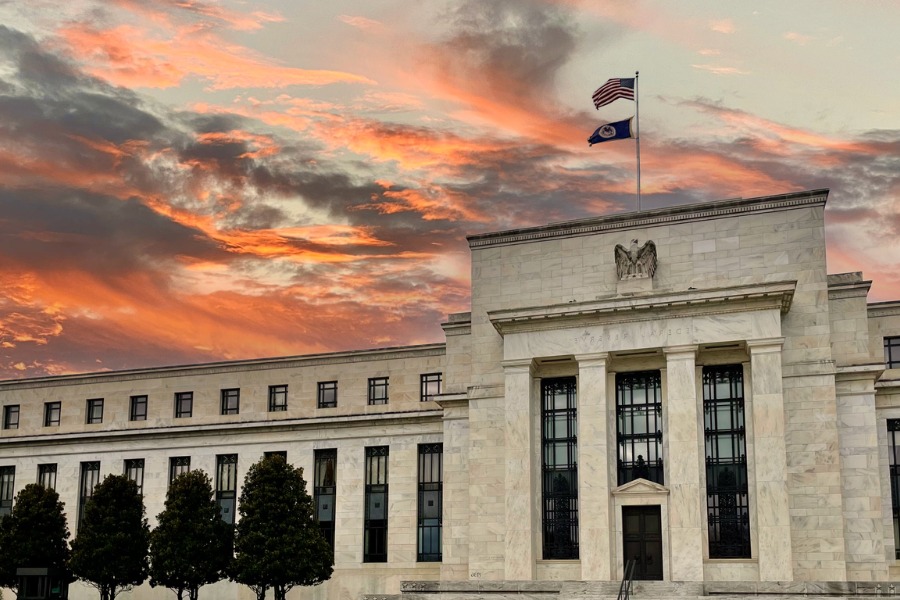

Retail investors are getting nervous that a return to more normal levels of inflation and interest rates is going to take longer.
A new survey published this week show that optimism is declining amid underlying economic and geopolitical concerns both in the U.S. and globally.
The Charles Schwab Trader Sentiment Survey found that 46% are bullish about the U.S. stock market in the second quarter of 2024. This is down from 56% in the first three months of the year. Bearishness increased across age groups but was most clear among younger and mid-life investors with these cohorts reporting increases of more than 15% each.
Asked about interest rates, one third of respondents believe there will be no cut by the Fed at all in 2024. For those that do expect rates to decrease, 43% say it will be a maximum of 50 basis points, 20% expect cuts of between 51 and 100bps, and just 5% think the Fed will cut by 100bps or more (down from 20% in the first quarter).
Inflation is also a key concern with 19% saying it is their biggest concern this quarter, up from 9% in the first quarter. Other concerns include the political landscape in DC (15%), market correction (13%), and geopolitical or global macroeconomic issues (11%).
“Traders began the year feeling pretty confident that the economy was improving, and Fed rate cuts would be quick to follow,” said James Kostulias, head of Trading Services at Charles Schwab. “But inflation concerns have jumped significantly. While about half of traders believe we’ll avoid a recession this year, overall stock market sentiment cooled a bit in Q2 as those concerns took hold and expectations for rate cuts were significantly dialed back as key drivers like the Consumer Price Index indicated inflation was once again on the rise in March.”
Despite concerns about external impacts on their investments, the share of investors who said they are confident in their own decision making has hit a new all-time high of 69%.
“We saw a significant uptick this quarter in traders who say they are spending more time researching trades before executing them,” said Kostulias. “Trader education is a huge part of what we offer at Schwab because we know that when traders have valuable information at their fingertips, they actively use it to inform their investing decisions, and that contributes to a high level of confidence in their ability to reach their investing goals.”
The report also found that almost two thirds of the traders who took part in the poll said they are bullish on the energy sector, 51% said this about IT, and 40% on both health care and materials.
Traders are most bearish on real estate (52%) and while they are bullish overall on AI these stocks are considered the most crowded or overbought trade by 44% of respondents.
Almost two thirds of traders said they were considering trading options in this quarter, but just 13% plan to trade short-dated or zero days-to-expiration options, despite reported growth in the use of these strategies over the past year.
Cryptocurrency caution is also high with only 15% considering trading the digital assets in this quarter.
Significantly more traders say they plan to add money to their investment portfolio over the next three months (48%, up from 38% in Q1). Other top near-term plans include moving money into individual stocks and moving money into ETFs.

Relationships are key to our business but advisors are often slow to engage in specific activities designed to foster them.

Whichever path you go down, act now while you're still in control.

Pro-bitcoin professionals, however, say the cryptocurrency has ushered in change.

“LPL has evolved significantly over the last decade and still wants to scale up,” says one industry executive.

Survey findings from the Nationwide Retirement Institute offers pearls of planning wisdom from 60- to 65-year-olds, as well as insights into concerns.
Streamline your outreach with Aidentified's AI-driven solutions
This season’s market volatility: Positioning for rate relief, income growth and the AI rebound
